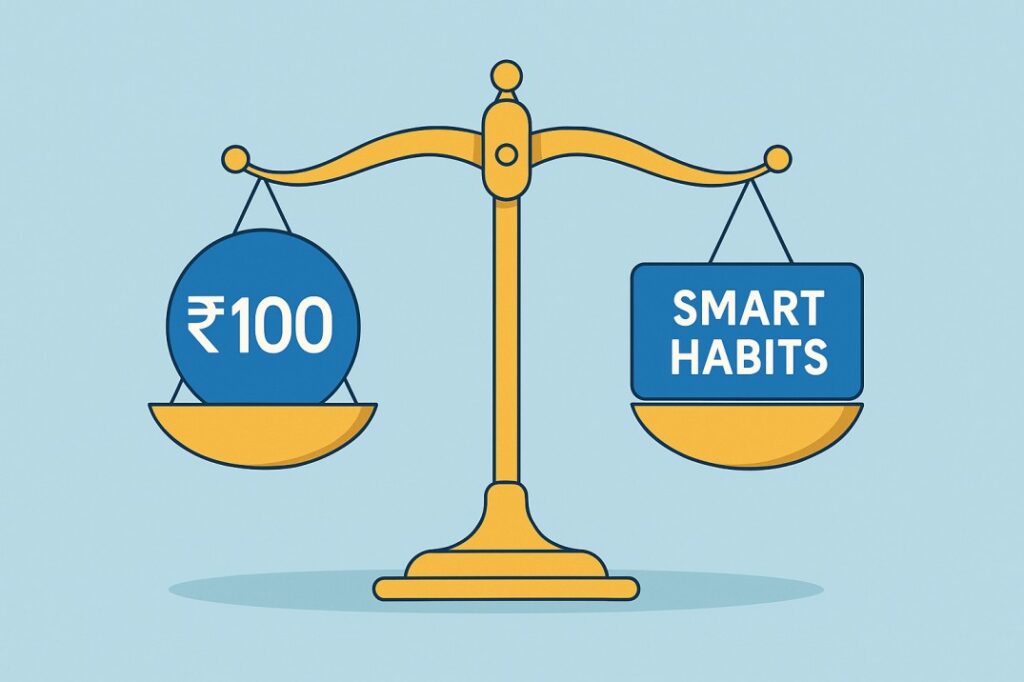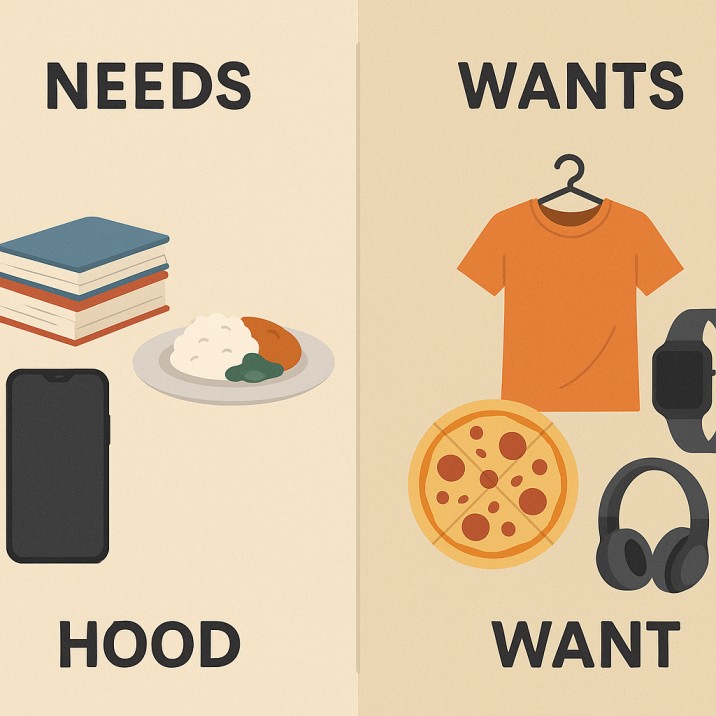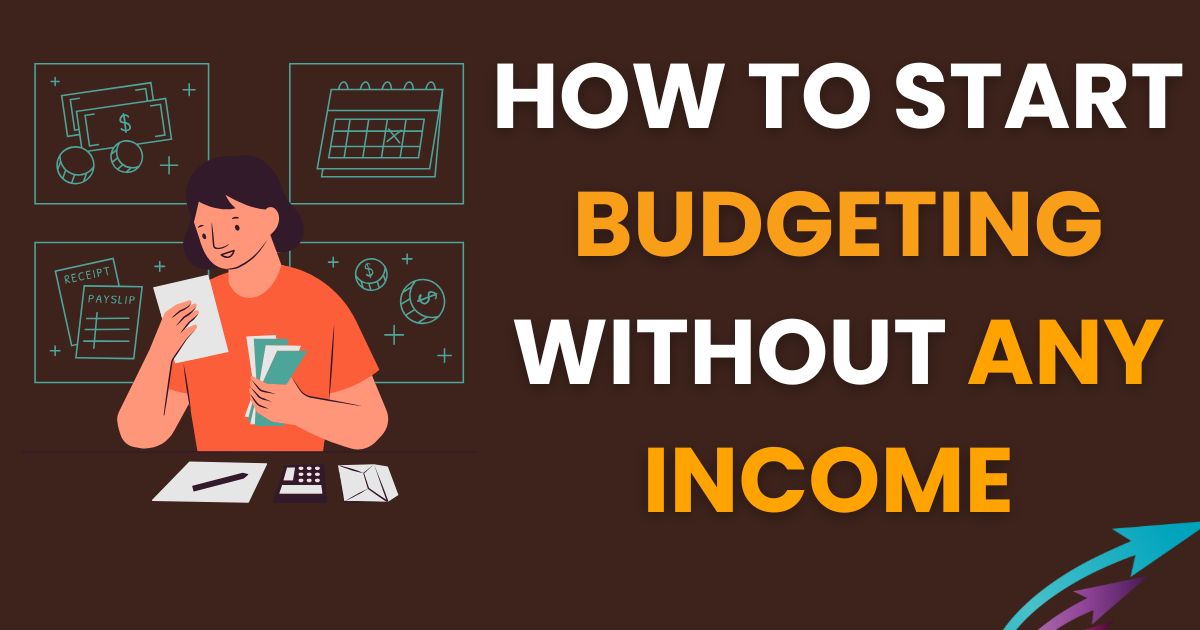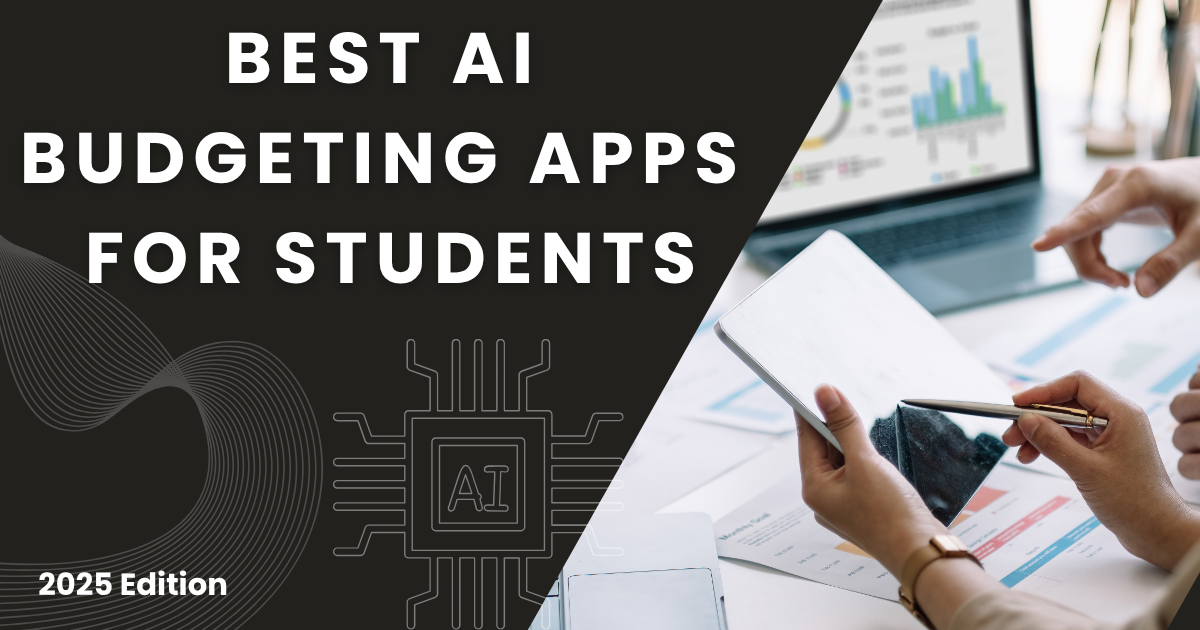How to Start Budgeting Without Any Income in 2025
As a student or beginner, it’s easy to think budgeting is only for adults with full-time jobs or regular income. But the truth is, budgeting without any income is not only possible it’s essential.
Budgeting is not about how much you earn, it’s about how well you manage what you already have. Even if you don’t have a job, you still deal with money in some way, pocket money, birthday gifts, small cash from relatives, or maybe digital payments from friends. Learning to track and manage that small amount now can shape your entire money mindset for the future.
And the best part is that you don’t need a fancy app, a salary, or even a bank account to start. All you need is a bit of awareness and a few easy tools (we’ll share those too).
Let’s begin by answering the most important question.
Why Budgeting Is Useful Even If You are Not Earning
Budgeting when you have no income might sound pointless, but it’s actually one of the best times to start.

👉Here’s why budgeting matters:
- You build good habits early. When you learn to handle small amounts now, it becomes much easier to manage big money later.
- You avoid silly mistakes. Things like overspending, borrowing from friends, or buying stuff you don’t need usually happen when you don’t keep track.
- You feel more in control. Even if you only have ₹100 a week, knowing where it goes helps you make better choices and feel more confident.
So, instead of waiting for “someday” when you’re earning, you can start learning money skills today and grow with them.
How to Start Budgeting Using Pocket Money or Gift Cash
You don’t need a job or steady income to start managing your money you can begin with whatever little you receive. Even if it’s just a small gift or some monthly pocket money, budgeting without any income is still completely doable.
Whether it’s ₹100 from your parents, birthday money from relatives, or a festival envelope, it all counts as income in your world right now. The important part is to start noticing where that money goes.
Step 1: Write Down What You Get
Start by noting how much money you receive and when. This could be once a month, every festival, or randomly. Keep it simple:
- ₹200 – Birthday gift
- ₹100 – Pocket money (July)
- ₹50 – Helped Dad with a chore
This helps you become more aware of your money, and awareness is the first step to control.
Step 2: Divide It Into 3 Simple Parts
Once you know what you have, divide it up:
- Spending (50%) – Use this for everyday fun: snacks, mobile recharge, outings with friends, etc.
- Saving (30%) – Even saving ₹20 or ₹30 can build a habit. Use a piggy bank, a UPI wallet, or a savings jar.
- Learning or Growth (20%) – This is your “future fund.” Use it for a new book, an online course, or even a better earphone that helps you learn better. It’s an investment in you.
Step 3: Track It Simply
You don’t need an app or spreadsheet. A notebook or your phone’s notes app works great.
- Just write what you got and what you spent.
- Over time, you’ll see patterns, like how much goes into snacks or subscriptions.
Budgeting = Control. You’ll start feeling more confident when you know where your money goes, even if it’s just ₹100.
👉Explore on: How to Build an Emergency Fund as a Fresher
Best Free Budgeting tools for Students With No Income
You don’t need fancy software or a bank account to start budgeting. In fact, some of the best tools are free, simple, and perfect for students or beginners, even if you don’t have regular income.
Here’s how you can track your money using tools you already have:
1. Notebook or Diary
This is the easiest and most beginner-friendly method.
How to use it:
- Use one page per month.
- Write down every rupee you receive (pocket money, gifts, etc.).
- Below that, list your spending, snacks, recharges, books, etc.
- At the end of the month, check what’s left and where most of your money went.
2. Notes App on Your Phone
Don’t want to carry a notebook? No problem, your phone has you covered.
How to use it:
- Create a note called “My July Budget” (or any month).
- Use simple lines like:
+₹200 – Birthday gift
-₹30 – Snacks
-₹20 – Mobile data
=₹150 left
- Update it every time you receive or spend money.
3. Google Sheets (Optional but Powerful)
If you’re okay using your phone’s browser or the Sheets app, this is a great tool that grows with you.
How to use it:
- Make simple columns: Date | Amount | Type (income/spend) | Notes
- Color-code your savings and expenses.
- Over time, you’ll start noticing trends in your spending.
4. Free Budgeting Apps (Mobile-Friendly)
Some apps are beginner-safe and don’t need income or bank linking.
- Walnut – For manual expense tracking
- 1Money – Super simple, great for cash tracking
- Monefy – Visual and very beginner-friendly
- Spendee (free plan) – Good design and basic features
Things to look for in a good budgeting app:
- No forced bank sync
- Works offline or manually
- Easy to use with ₹ entries
👉The best tool is the one you’ll actually use. Don’t worry about using everything perfectly. Just choose one method notebook, notes app, or budgeting app and stick with it for a few weeks.
Check out: How to Use AI investing tools for students in 2025 | Simple Guide
Wants vs. Needs: How to Stop Wasting Money Without Even Earning
When you don’t have a regular income, every rupee matters. And the biggest mistake many beginners make? Spending on wants, not needs without even realizing it. That’s why learning how to start budgeting without any income is so important it helps you make smarter choices with the little money you do have.
Let’s understand the difference first:

What Are “Needs”?
These are things you must spend on to stay healthy, safe, or productive.
- Basic food and water
- Mobile recharge (if used for learning or communication)
- A notebook or pen for studying
- Local travel fare to college
Needs help you function day-to-day. You can’t really avoid them.
What Are “Wants”?
These are extra things nice to have, but not essential.
- Ordering fast food or coffee frequently
- Upgrading to trendy clothes you don’t need
- Paying for premium subscriptions you barely use
- Buying gadgets just because others have them
Wants are tempting, but they often eat into money you could save or use for something better.
So, How Do You Control Your Wants?
Here are a few easy tricks to stop wasting money, even when you’re not earning:
1. Ask Yourself: “Do I need this or just want it?”
Every time you’re about to spend money, pause and ask this one simple question.
If it’s a want, wait 24 hours before deciding.
2. Make a “Wish List,” Not an “Instant Buy” List
If you really want something, don’t buy it immediately.
Note it down. See if you still want it a week later.
Often, the excitement fades, and you save money without even trying.
3. Budget a Small “Fun Amount”
It’s okay to enjoy a little, just set a limit.
For example:
“If I get ₹200 this week, I’ll allow ₹50 for fun, and the rest I’ll save or spend wisely.”
This way, you won’t feel restricted, but you’ll still stay in control.
4. Practice Saying “No” to Peer Pressure
Sometimes we spend just to fit in, group orders, trends, or outings.
You can politely say:
“I’m saving up for something important.”
or “Not today, I’m on a small budget.”
Trust us people respect it more than you think. And your future self will thank you.
Small Mindset Shift = Big Results
Even if you’re managing just ₹100 a week, choosing needs over wants will:
✔ Help you save without stress
✔ Make your money last longer
✔ Train your mind for smart money decisions in the future
How to Turn Small Wins Into Big Gains ?
You might think saving ₹10 or tracking ₹100 doesn’t matter much.
But here’s the truth, big financial confidence starts with small wins.

Let’s look at how those little steps can turn into something powerful over time.
1. Celebrate the Tiny Victories
Did you avoid spending ₹50 on impulse snacks?
Did you track your expenses for a whole week?
That’s a win!
These may feel small, but they build the habit of awareness and discipline, two of the most important money skills in life.
2. Save Consistently, Not Perfectly
You don’t need to save a big amount.
Even ₹20 per week adds up to over ₹1,000 in a year.
And more importantly, it shows you can stick to a plan, which is what really matters.
3. Use Small Savings for Growth
Use your savings smartly:
- Buy a budget-friendly online course
- Invest in a basic book on money or career skills
- Save for a tool (like a good earphone, mouse, or mobile stand) that helps you create content or study better
This is how you turn savings into skills and success.
4. Let Momentum Work for You
Once you start seeing progress, no matter how small, you’ll feel more confident.
Confidence leads to better decisions.
Better decisions lead to more progress.
And before you know it, you’ve built financial confidence without even having a job.
Final Thought: You’re Building a Strong Foundation
Even without income, budgeting and small savings help you:
- Avoid bad habits early
- Gain control over your money
- And most importantly, feel proud of every step you take



